Want to Work on an Organic Farm in Italy?
Here's the story of a couple from New York who did just that...
Scroll down to the bottom of the page for answers to some of the questions we are often asked about working on a farm in Italy.
From New York to an Italian Farm
So you want to see the Italian countryside, immerse yourself in the culture of true Italian life, and do this all on a budget? Seems impossible... it is isn't.
The answer is to WWOOF! World Wide Opportunities on Organic Farms, an organization that connects people looking to volunteer on organic farms for periods of one week to several months in exchange for room and board.
In Italy, you have the option to search by region, thereby choosing your favorite locale from the hills of Toscana, the mountains of Piemonte, the coastal towns in Sicilia, and everywhere in between.
I know what you are thinking: what's the catch? There is no catch, but don't be deceived into thinking that this is an all-expenses-paid vacation. Because of the nature of the program, it is an exchange of services designed for people wanting to gain something from the experience of farming rather than just getting a freebie and moving on.
You, as the volunteer, work for the farm, and they, as the host, provide you a place to live and food to keep you more than satiated. Anyone can volunteer, from single travelers to couples to families with children. If you have an adventurous spirit and a desire to learn something new, it is a wonderful opportunity to see Italy in a novel way.
I am currently wwoofing in Emilia-Romagna in the small town of Brisighella. Myself, my husband, and our dog Betsy have traveled to this other worldly place from what might be described as exactly the opposite: New York City.
From a bustling city of over 8 million people to a quaint province with less than 8 thousand, we have achieved the change in scenery we desired. I was working over 40 hours a week as a mental health counselor and my husband often worked more than 60 hours a week as a restaurant manager. While we both enjoy our respective careers, we definitely needed a break.
The reason for our move put simply is to live La Dolce Vita as they say in Italy. We have traveled to Italy twice before living here and completely fell in love with the people, the culture, and of course the food. I had to mentally prepare myself for the difference that this trip would be and what a difference it would be from the hustle and bustle of the lifestyle I was accustomed to.
I knew that it would not be vacationing in the traditional sense but I was ready to take in the real Italy during our four month journey.
Doing this type of traveling requires a bit of flexibility and free spirited nature. The story of how we got to where we are currently is as follows: we booked a one way flight (try Kayak for great flight deals) for mid-March without knowing exactly where we would go. Beginning in June 2015 we emailed several farms to plan for our arrival the next spring. This proved very difficult since many farms do not know what type of help they will need each season, let alone nine months away.
Luckily we connected with a farm coincidentally in the same province where we are currently living, Ravenna. We skyped to make sure we could communicate with one another and to see each other “face to face” before the final ok. They spoke some English and their farm seemed unique and well suited to us. We were excited to finally know where we were going and have something solid to look forward to. I could envision days spent under the sun, planting fruits and vegetables, and eating endless amounts of pasta.
We kept in communication with the farm to make sure things were still in line for us to arrive.
In January, we received an email stating that the farm was closing due to financial reasons and that they could no longer host us.
We were disappointed and a little frantic given the timeline, but again, flexibility is required. We quickly began sending out more emails explaining the situation and got a few leads. We again skyped with a couple hosts and settled on a farm in Lazio, near Rome.
A couple weeks before our departure, we checked in with the Lazio farm to confirm our arrival at the farm and arrange for transportation. We did not receive any response and still have not heard word from him to this day.
You have to love the easy-going nature of Italians sometimes!
Thankfully, our original hosts extended an offer to help out and got us set up with our current farm with one week to spare before our departure. At this point, we just needed somewhere to go. We had spoken before about contingency plans and decided that if a farm or our hosts were not a match for us, we could arrange a backup plan once in Italy.
Our conversation with our new farm went something like this: “So you need a place to stay for four months? Ok, we'll take you.” So we packed up all of our belongings and locked them in a closet in our tiny New York apartment and left for the airport, dog and 2 backpacks in tow. The farm I had researched and dreamed about for many months was now closed, and the farm we were headed to was a big unknown. I could barely sleep the entire plane ride, thinking about all that we would experience.
In true American fashion, we took the wrong train when we arrived in Milan, adding 3 hours to our journey to the farm. When we arrived, we were blown away by the beauty. Granted, any Italian farm with sprawling hills and greenery everywhere is likely beautiful. Our farm is surrounded by hills and other well-plotted farmland, has endless rows of vineyards, and several friendly people. We were given the evening to settle in and began work the next day.
The organization makes it known that clear communication between the wwoofer and host is essential. It is standard for the volunteer and host to talk about expectations and if there are any issues, to come to a solution together. We were told that we would get two days off per week and we were expected to work six hours a day. Six hours! While this is common in most wwoofing situations, it is such a drastic difference from our 40 plus hour work weeks in New York. Needless to say, it was a more than welcomed change.
We were eager to see what we would be working on and, again, in the American way began asking lots of questions about what would happen next and what about tomorrow and the next day. In the beginning I was told “tranquilla” a lot, meaning to be calm and relax.
The reminder was necessary. I am used to working on a tight schedule, knowing what is expected of me and having people tell me when I am not meeting their expectations.
This is not entirely different than life on the farm; they still expect things to get done in a somewhat timely fashion and have some interest in what we are doing with our time. However, the manner in which these expectations are carried out is completely different than what I am used to. Things are slower here, as they are in most of Italy, and there is a break taken mid-day to soak in all of this wonderful culture.
Our jobs varied. From pruning trees, planting vegetables, tilling land, building things, cooking, and cleaning, we have been asked to do it all. Some things I have enjoyed more than others, and thankfully, our hosts have been receptive when I am not enjoying a job.
Not surprisingly, my favorite tasks on this organic farm have been planting and tending to the vegetable garden. There is something so peaceful and grounding about gardening that I have never had the opportunity to experience in our New York lives. Being a therapist, I am lucky to draw many analogies and lessons about mental health from farming. I know this will make me a better therapist when we return.
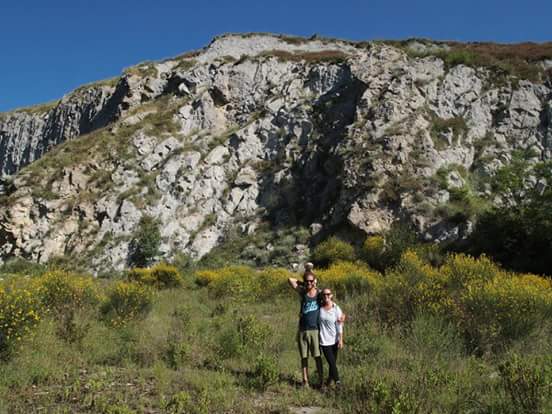 My husband and I
My husband and IThe other major benefit of traveling in this way is the chance to see smaller towns that we would not have scheduled stops in on a “normal” vacation. We live like locals, which means we may head to the seaside for the weekend and do not often encounter people who speak English. We have met many people simply because we speak a mixture of English and Italian, and they are curious as to why we are in their tiny towns. We have been to the lesser-visited towns of Faenza, Ravenna, Parma, Modena, Forli, and Cesenatico and the larger cities of Bologna, Florence, and Como.
It has been nearly three months that we have been living in Italy. The long-term nature of our WWOOFing has made it beneficial to actually get a hang of things like pruning and tending to the plants and vineyards that we would not have had the opportunity to do if we only stayed for a short period. But even if the time was short, I still would not hesitate to recommend this way of traveling to someone looking to detach from their previous known world and immerse themselves in something completely different.
Working on any farm is actual work, and if you do this, you should expect it to be as such. I work hard, get really sweaty, and do many things I have never done before. Then I also get to make fresh pasta, learn Italian, and eat amazing food on a daily basis. Like most things in life, there are pros and cons to this way of traveling.
Sometimes when I am dirty, smelly, and beyond sore I wonder why I am doing this. I had a cushy, well paid office job with air conditioning and now I am working as a farmer for free?!
But then I look around at the hills, the greenery and everything we have worked so hard to plant and maintain and I have no regrets. I feel pride in the creation of the garden, largely planted and maintained by my husband and I. I feel fulfilled in growing and eating the food that I have watched develop after planting it only weeks before.
Mostly I feel lucky that a program such as World Wide Opportunities on Organic Farms exists and that our wonderful hosts took a leap of faith in inviting us to join them in living La Dolce Vita della Campagna (The Sweet Life of the Countryside)!
You can follow my WWOOFing and other adventures here on my travel blog!
Common Questions about Working on a Farm in Italy
Of course, we cannot give specific advice, legal advice, or visa advice; therefore, the questions below serve as guidelines only. You will need to do your own research. We are also not able to find you a job in Italy.
What are the requirements or qualifications for working on a farm in Italy?
What are the requirements or qualifications for working on a farm in Italy?
To work on a farm in Italy, it is important to have the appropriate legal authorization. If you are not an EU citizen, you may need to obtain a work visa or permit. Proficiency in Italian is beneficial as it facilitates communication with fellow workers and local residents. While specific qualifications vary depending on the type of farm work, having prior experience or skills in agriculture, such as farming, viticulture, or animal husbandry, can be advantageous. Certain positions may require specialized certifications or training, particularly for tasks involving the use of machinery or handling chemicals.
What types of farm work opportunities are available in Italy?
What types of farm work opportunities are available in Italy?
Italy offers diverse farm work opportunities across various agricultural sectors. Vineyards and wineries are prominent, especially in regions like Tuscany and Piedmont. Olive groves, producing world-renowned olive oil, are also common. Other possibilities include working on livestock farms, dairy farms, fruit orchards, or vegetable farms. The availability of positions may vary seasonally, with some farms offering temporary or seasonal work during peak periods, while others provide year-round employment.
What is the typical work environment and lifestyle like on an Italian farm?
What is the typical work environment and lifestyle like on an Italian farm?
Daily tasks can involve tending crops, harvesting, pruning, animal care, or maintaining farm equipment. Farm work can be physically demanding, with varied working hours depending on the season and specific tasks. Accommodation options may include on-site housing, shared apartments, or nearby rentals. There are stories of great experiences and of horrible ones - make sure you do your research.
If you enjoy my site, I'd love your support.
All you need to do is book your accommodation via this link or any of the other hotel links on the website. Whether it's for travel to Italy... or anywhere else on earth, your support means the world to us.
You'll get the best deal available, and the income helps us stay independent and keep bringing you the best of Italy.
- HOME
- Italian Stories and Albums
- Working on an Organic Farm
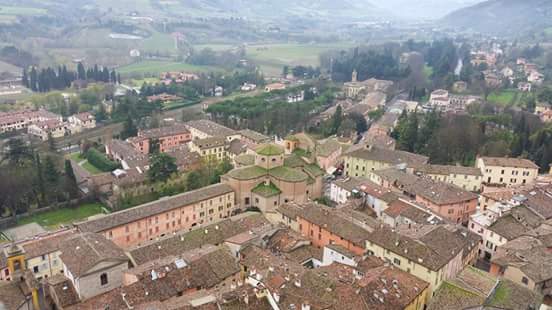
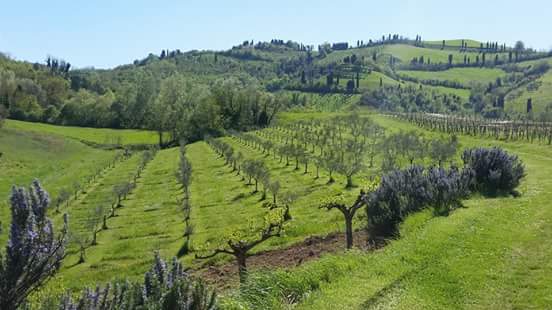
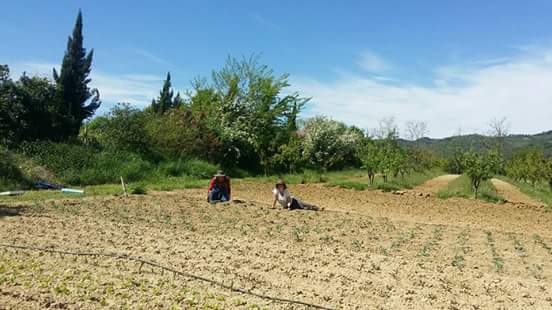
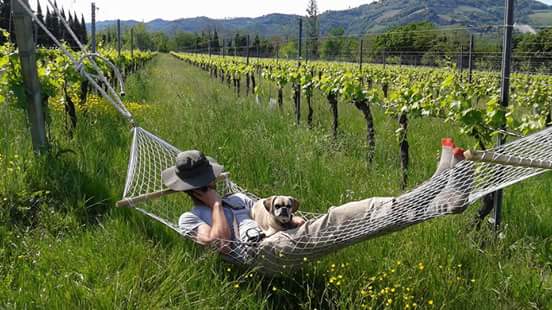
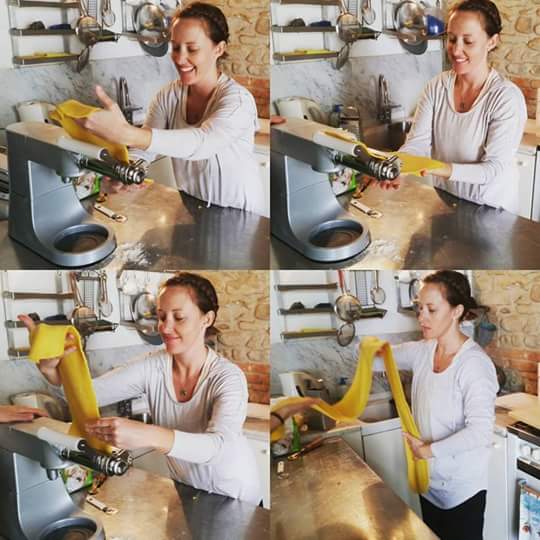










New! Comments
Have your say about what you just read! Leave me a comment in the box below.